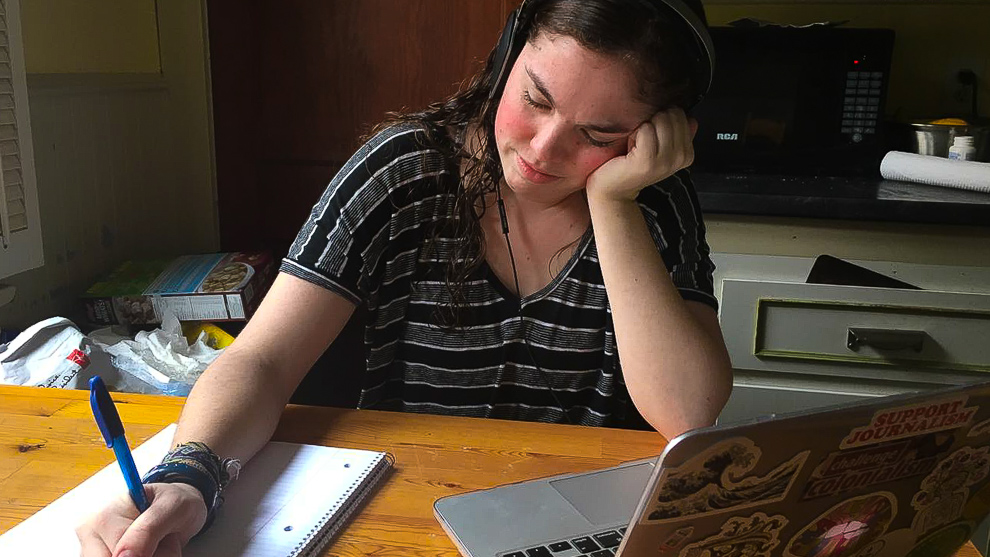Students
Another tuition increase recommended for Dalhousie University
Budget committee calls for 3% increase in tuition fees, cuts to faculty

caption
Gabbie Douglas, a second-year student at Dalhousie University, wonders how she will afford her tuition this fall.Students at Dalhousie University are facing another tuition hike this fall, the sixth since the 2013-14 school year.
The Budget Advisory Committee has recommended a three per cent tuition increase for the 2018-19 school year. The committee’s draft operating budget states that lower tuition fees cannot happen until there are changes in government funding and public policy, or until there is a new source of funding.
Tuition went up 3.1 per cent this year.
Gabbie Douglas, a second-year international development student, wonders how she’ll afford to keep going to school. She relies on student loans and grants, and has spent her last four summers working full time at various camps. Related stories
Her tuition was $8,500 this year. With the increase, it will be about $8,800.
“Honestly this tuition spike could throw a wrench in what I believe is a good system I got going for myself,” she says.
According to a 2015 study by the Canadian Centre for Policy Alternatives, university tuition across Canada has tripled since the 1993-94 school year.
At Dalhousie, the first tuition increases in 2013 happened because the provincial government grant for education had decreased by three per cent.
DFA opposes plan
Darren Abramson, president of the Dalhousie Faculty Association, says the association opposes the budget proposal because they think the money is not being spent the way it should.
“The purpose of Dalhousie University is the academics,” says Abramson. “Dalhousie faces many issues, many I will describe as socio-cultural, but for some reason tuition doesn’t seem to be as juicy.
“I happen to believe that tuition is probably one of the most extreme limiters of post-secondary education to those who belong to diverse backgrounds.”
The proposed budget also calls for a 1.5 per cent cut to faculty and service units.

caption
Dalhousie University is facing its sixth tuition hike since 2013.More money for student assistance
The recommended three per cent increase to tuition applies to all students. For Canadian students, arts tuition would go up by $255, sciences by $285, commerce by $319 and engineering by $302.
The advisory committee is also recommending that an extra $500,000 be made available for student assistance. It argues this would have a greater impact than putting the money towards tuition, which the committee says would save each student only $25.
Devon McCarron, a 19-year-old acting student, is worried about a tuition increase regardless of the increase to student assistance. Her $8,600 tuition would increase to about $8,900.
“University fees are already ridiculously high and it’s disheartening to see it go up,” says McCarron. “University is supposed to help you in your future, not tear you down. Student debt is probably my biggest fear right now and I’m worried how it will affect my future.”
The committee acknowledges that the tuition at Dalhousie, and other Nova Scotia universities, is “above the average” when compared to other provinces.
‘Hold them accountable’
Dalhousie Student Union president Amina Abawajy says she is disappointed with the proposed increase to tuition as the union has consistently advocated for the reduction and hopefully elimination of these fees.
“When are we going to listen to students?” says Abawajy. “Students have made it clear how tuition fees are affecting their daily lives, and yet time and time again the administration has been ignoring and not listening to students. We are the biggest stakeholder of this institution, so I think it’s time.”
Abawajy calls students to action by reminding them that “the board makes decisions that impact our lives in very real ways and it’s up to students to hold them accountable.”
The proposed recommendations are expected to go to the Board of Governors for approval on April 24, and the university’s operating budget goes to the board for approval in June.
About the author
Ellery Platts
Ellery is a fourth year student in the BJH program at King's. She is extremely passionate about sports and photography.
